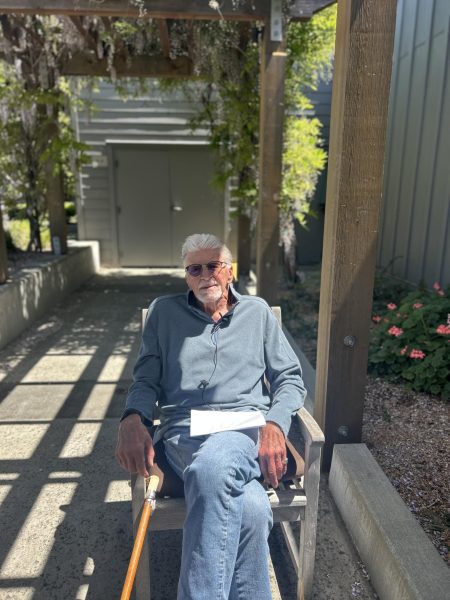Maria Sousa breaches gender gaps in wrestling
March 1, 2023
Maria Sousa began her wrestling career at the start of her freshman year as the only female on the team, and it has remained that way. With only three girls ever accounted for participating over the last six years, Sousa decided to defy the odds and join. She felt assured about her decision because it utilized her four years of experience in Judo, a complex Japanese unarmed combat sport she played before immigrating to the United States from Brazil.
Deciding to follow her passion came with challenges. She had to overcome the physical disadvantage of wrestling with men and the societal stigmatization of female wrestling that has prevented women from embracing the sport.

Marina Cruz, Sousa’s cousin and friend, has observed Sousa outface these obstacles up close.
“[Being on the wrestling team] was a challenge for her. She wrestled with only boys, which is hard because it is a fighting sport, and [the] guys are strong. They expected her to be at their level,” Cruz said.
Cruz explains how being a female in a male-dominated field can be physically intimidating and challenging. Those around her were worried if a young woman like herself could handle the circumstances of participating in an archaically accepted “masculine sport.”
“[Her position] had worried our family [because she was the] only girl in a team [of all boys]. Many people told her that [the boys] would just go easy on her or [were] worried because she was always bruised. They told her it wasn’t worth it and that she should quit,” Cruz said.
Furthermore, Sousa has also had to overcome situation-based adversity, making it even harder for her to participate in wrestling. One is managing the time-consuming commitment she has to fit into an unaccommodating lifestyle.
“I have to put in hard work for three hours a day [at practice, six days a week], which is really exhausting,” Sousa said. “I live far from Redwood, so I have to take two buses to get home and have little time to do my homework.” 
Despite the hardships, her love for wrestling evoked an internal strength that she channels on and off of the ring. Sousa gives credit for her new-found confidence in the team’s encouraging environment.
“One of my coaches always says that you have to be confident. In wrestling, you always have to shoot your shot, and nobody will stop you from that. I think about that with everything that I do,” Sousa said.
Lochlan McHale, Sousa’s coach, has been able to connect with her very well and remembers the first time Sousa came to the wrestling room.

“[Sousa] walked into the [wrestling] room unafraid of contact or asking questions. Fear was not in her sight, or at least she did not let us on to it,” McHale said. “She trained within our club in the off-season, and I would say that I and everyone really got to know her during that time. What she wanted out of life, out of the season.”
In a turn of events, Sousa suffered a severe knee injury at the end of her 2021 season. Faced with encroaching thoughts of self-doubt, her ambitious mindset and her teammates’ support helped her grow even stronger.
“[The injury] was tough because I couldn’t even really stand up, but that didn’t stop me from chasing my wrestling dreams; I would watch videos on my technique. One of my teammates and my partner from last season helped me a lot throughout my injury,” Sousa said.
She has now recovered, and her hard work paid off as she earned 12th place in her section at the [North Coast Section] tournament on Feb. 17, nearly qualifying for the state-level competition. Sousa has overcome many conflicting roadblocks throughout her journey thus far, but her eagerness to wrestle has proven to consistently prevail.























